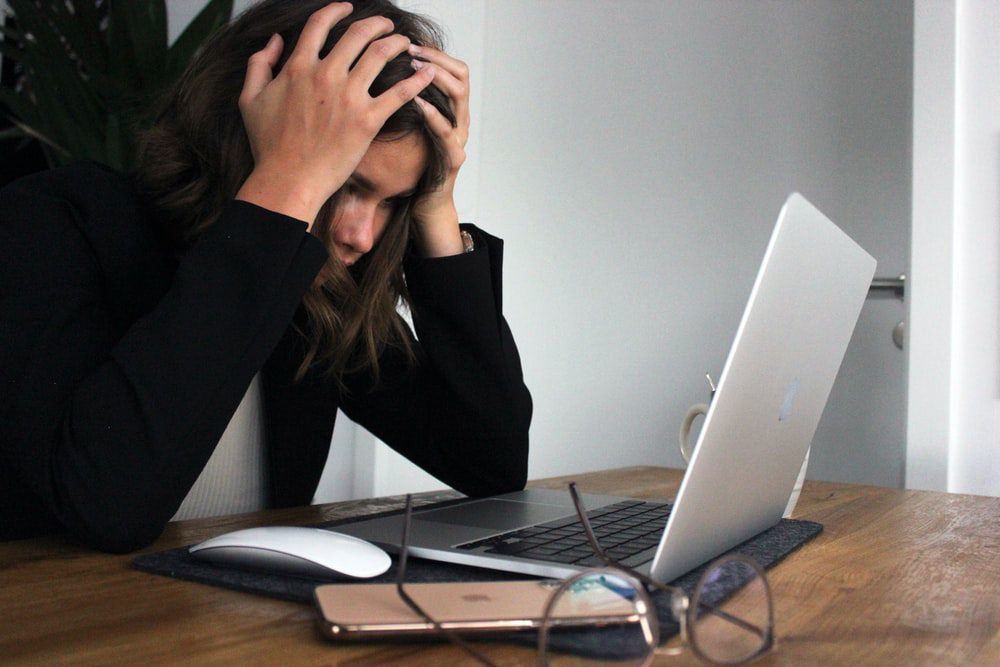By Helene Ravlich
My personality type means that I’m prone to overwork – especially as a distraction tactic when I feel like things around me are spiralling out of control. This always hits when we are plunged into another lockdown, when I find it near-impossible to ‘turn off’, and find myself checking emails and brainstorming even when it’s *technically* the weekend. This is when, if unchecked, the beginnings of burnout can start to make themselves felt, and need to be knocked on the head sooner rather than later.
As a specialist in hormonal well-being, mental health, fatigue, gut health and more, Lisa Grey is an expert when it comes to identifying the early signals, saying it most likely kicks in with a lack of concentration. Simple tasks take much longer than they used to. Apathy and cynicism set in. Productivity drops, or at least it feels that way. So you put in more effort to compensate but fail to feel the sense of fulfilment you used to – and wind up feeling more exhausted. You’re burned out.

Though not a medical diagnosis, burnout is linked to a range of serious health issues, from depression to cardiovascular disease. In 2019, burnout was officially recognised as an ‘occupational phenomenon’ by the World Health Organisation. A Clinic Manager and Lead Researcher at New Zealand wellness company BePure, Lisa says that in her experience, many New Zealanders have a hard time accepting they’re burned out. She believes that this is partly because, as a culture, we have normalised an unsustainable pace of living and working.
“Like many of my clients I see at our clinic, I spent a number of years ignoring my symptoms of stress and justifying why I didn’t “deserve” to feel burned out,” she says. “In fact, I had an endless list of excuses: ‘this is just what I have to do in life to get ahead, ’my parents never complained about working hard – why should I, ‘my colleagues can cope – I should be able to cope too.’
“Being burned out is by no means a badge of honour – nor is it a sign that you are doing well. However, it’s hard to accept you’re burned out and make changes when everyday culture repeatedly tells us that being “busy” is just part of life.”

Unsplash @elisa_ventur
While workplace burnout is potentially more recognised, parental burnout is also a very real experience – now, more so than ever. With the extra demands from lockdowns, many parents find themselves with no choice but to juggle parenting, homeschooling, and working without any additional support. There’s no doubt this prolonged stress from current pressures will be taking its toll on many.
While our bodies are built to endure and benefit from short bouts of stress – we have not yet evolved to cope with the abundance of stress our bodies experience in modern society. Whilst small bouts of stress helps us learn, grow and develop, prolonged activation of our stress response system can be detrimental to our health, lead to distress and in some circumstances, lead to disease.
Everyday stressors we’re all familiar with include things like; driving in traffic, working late hours to meet deadlines, engaging in tough conversations, dieting, over-exercising and sleep deprivation. Anything that demands your body to adapt, change or feel a sense of urgency or pressure activates our “fight and flight” response.
Continual activation of this system keeps our body flooded with cortisol, one of our key stress hormones. Because of cortisol’s crucial role in so many vital systems, higher levels of cortisol can have wide-reaching effects on our overall health and wellbeing. When our fight and flight system is set to “always on”, we disrupt almost every organ system in our body and can put our health at serious risk.

Unsplash @stilclassics
Whilst we cannot always mitigate or minimise the stressors in life, Lisa says there are many tools we can use to balance our nervous system and help our bodies deal with stress in a productive and health-promoting way. “In my practice, I recommend a personalised multi-pronged approach to burnout recovery,” says the expert. “This includes using a combination of dietary changes, regular movement, breathwork, healthy routines, sleep prioritisation, setting boundaries and nutritional and herbal supplementation. Each of these tools are powerful on their own and just adopting one of these strategies into your life can change your entire health trajectory.”
She also encourages her clients to “complete the body’s stress cycle. Like all biological processes, our stress system has a beginning, a middle, and an end. If we can move all the way through the stress response cycle, we enable our body to avoid continual stress and prevent our fight and flight system from being always on”. To complete the stress cycle we can use tools like movement, deep belly breathing, laughter, human contact, crying, music, or creative activities like painting or journaling. These activities all quench cortisol from our system and help us to return to a state of calm. Which of these activities will work best for you is down to your own individual preferences and needs. It’s critical to find what works for you and hone in on what fosters your own personal sense of balance and mental stillness.
The top nutritional and herbal supplements she recommends for those battling with stress and burnout can be found in BePure’s new ‘Inner Duo’, a powerful combo that provides support for optimal mental wellbeing and nervous system balance. The adaptogenic herbs and nutrients found in InnerCalm and Inner Strength help your body return to homeostasis, your home base of feeling good and prevents your stress system from running riot.

Header Image from Unsplash

